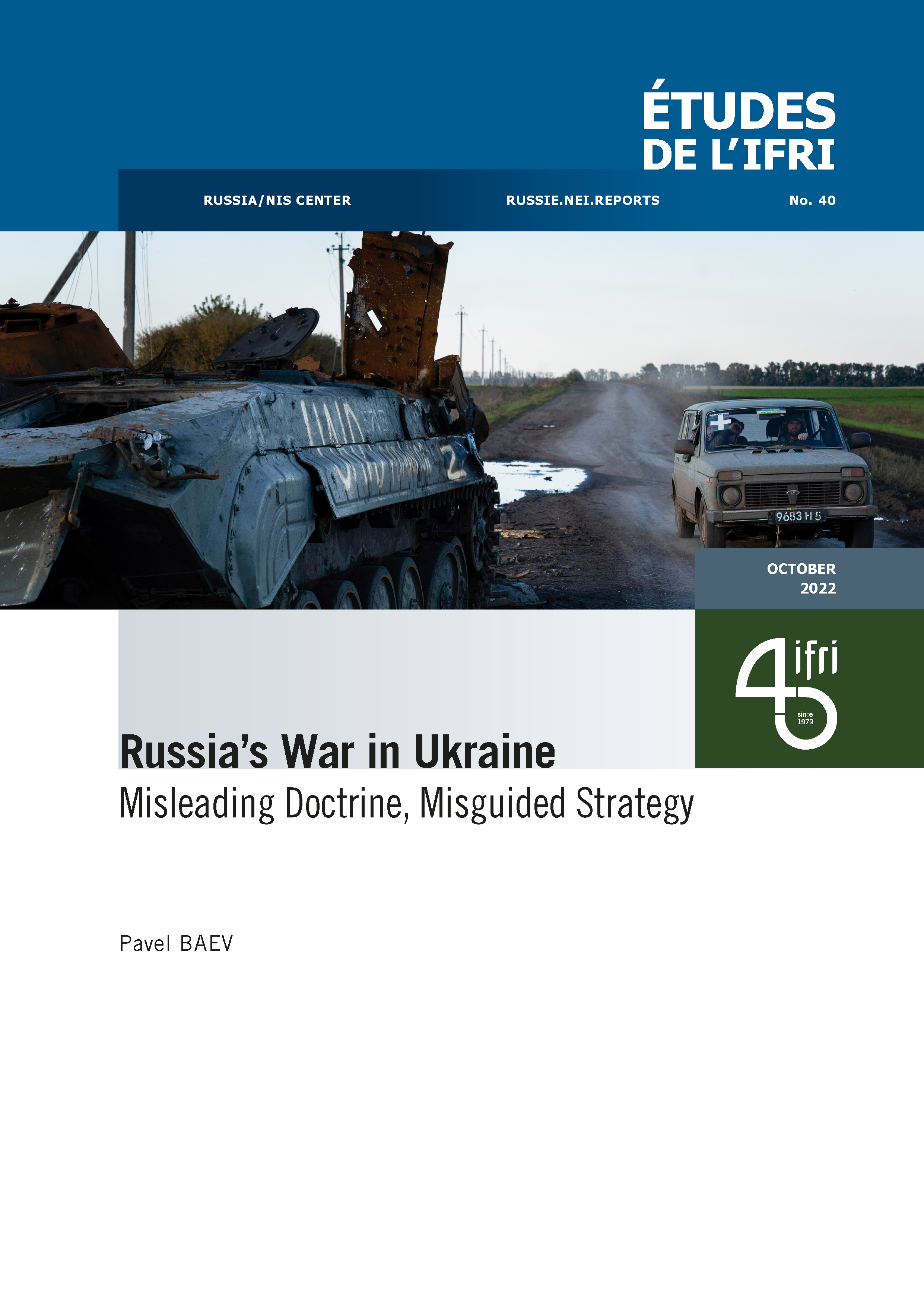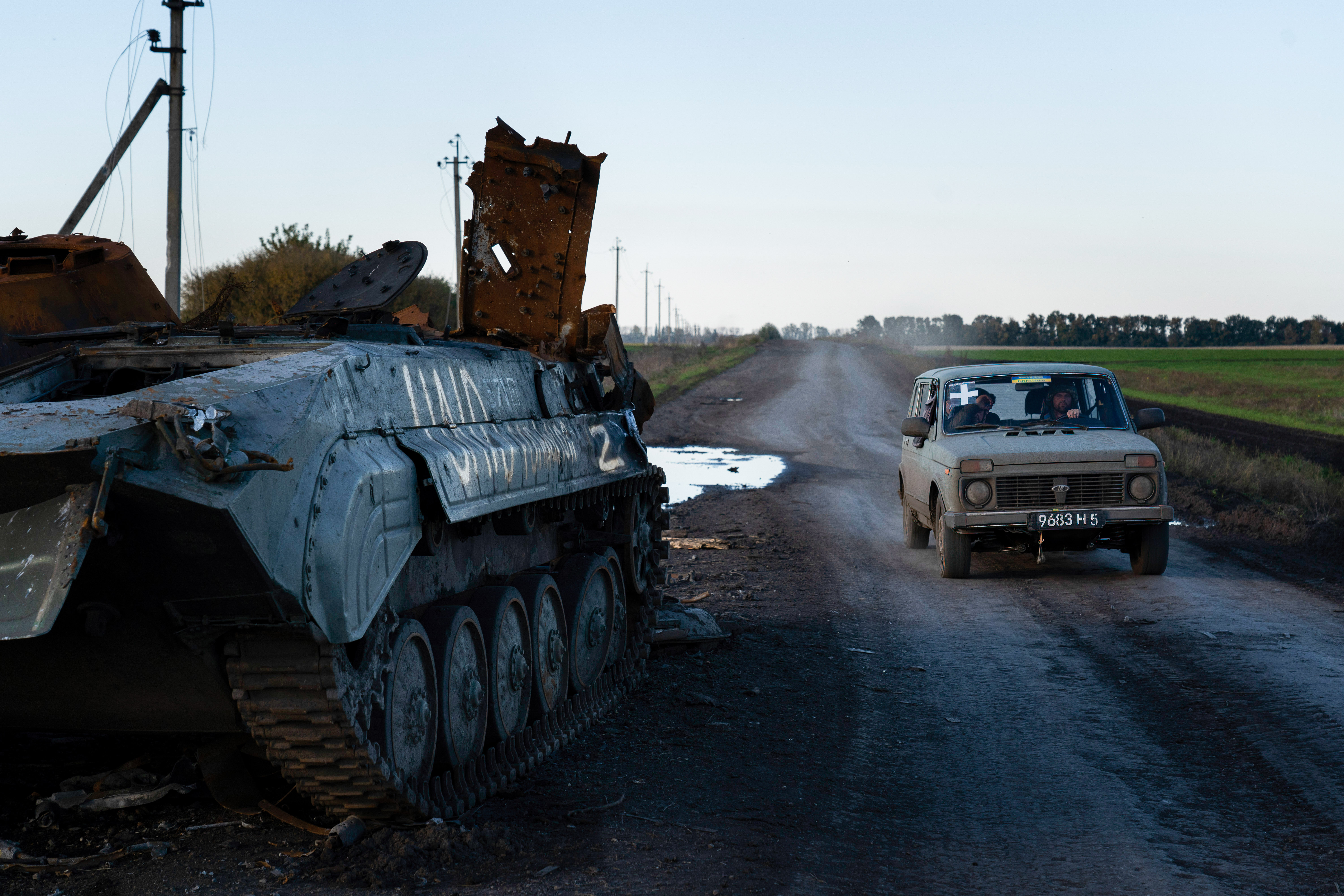Russia’s War in Ukraine: Misleading Doctrine, Misguided Strategy

The blame for committing the blunder of starting the war with Ukraine is deservedly placed on President Vladimir Putin, but a single-explanation interpretation of the unfolding disaster is unsatisfactory.

The scope of problems with the chain of command and logistics, scant air support and poor morale indicates that Russian planning and preparations for the war were seriously flawed and misguided.
On the level of doctrine, the assertion of Russia’s ability to deter North Atlantic Treaty Organization (NATO), defined as the main adversary, by employing the complete set of nuclear, conventional and “hybrid” capabilities, laid the foundation for the failure of attack on what was presumed to be a frangible Ukraine. Strategic guidelines on gaining a quick and complete victory by establishing air dominance and executing offensive maneuvers by armored battalion tactical groups (BTGs), led to the confusion of poorly coordinated attacks without proper air support. The strategic culture, pro-forma conservative but distorted by bureaucratic sycophancy and corruption, produced inflexible chains of command, demoralization of poorly led combat units and ugly atrocities.
The sum total of these flaws is too high for the Russian army to learn useful lessons in the six months of fighting, so it has fallen back on the old pattern of positional warfare based on destroying the enemy by heavy artillery fire. The strategy of protracted war of attrition can lead to victory only if the economy and society are mobilized fully for delivering the necessary resources to the fighting army, but such mobilization—while proceeding in defiant Ukraine—remains politically impossible in discontented, isolated, and economically degraded Russia.
Dr. Pavel K. Baev is a Research Professor at the Peace Research Institute, Oslo (PRIO). He is also a Senior Non-Resident Fellow at the Brookings Institution, Washington D.C., and an Associate Research Fellow at Ifri, Paris.

Available in:
Regions and themes
ISBN / ISSN
Share
Download the full analysis
This page contains only a summary of our work. If you would like to have access to all the information from our research on the subject, you can download the full version in PDF format.
Russia’s War in Ukraine: Misleading Doctrine, Misguided Strategy
Related centers and programs
Discover our other research centers and programsFind out more
Discover all our analysesRussia, the Palestinians and Gaza: Adjustments after October 7th
The Soviet Union (USSR), and subsequently the Russian Federation as its internationally recognized legal successor, has consistently sought to play a visible role in efforts to resolve the Israeli-Palestinian conflict.
Deathonomics: The Social, Political, and Economic Costs of War in Russia
The report attempts to outline and examine a truly new phenomenon in Russian society, dubbed “deathonomics”—the making of a mercenary army against the backdrop of the Kremlin’s war in Ukraine, eventually replacing both the Soviet (conscript) and early new Russian (contract) armies. It notes that, by the end of 2023, this trend had turned the military service into one of the highest-paying professions in the country, something not seen in Russia on such a scale since the late 17th century.
Russia's Asia Strategy: Bolstering the Eagle's Eastern Wing
Among Russia’s strategic priorities, Asia traditionally played a secondary role compared to the West. In the mid-1990s, then Foreign Minister Yevgeny Primakov initiated a rapprochement with China and India. Then, in 2014, deteriorating relations between Russia and the West prompted Moscow to begin its “great pivot to the East”.
Kazakhstan After the Double Shock of 2022: Political, Economic and Military Consequences
The year 2022 represented a dual shock for Kazakhstan. In January, the country faced its most severe political crisis since independence, followed in February by Russia’s full-scale invasion of Ukraine, which cast uncertainty over the borders of post-Soviet states. These consecutive crises profoundly shaped Kazakhstan’s domestic and foreign policy.










